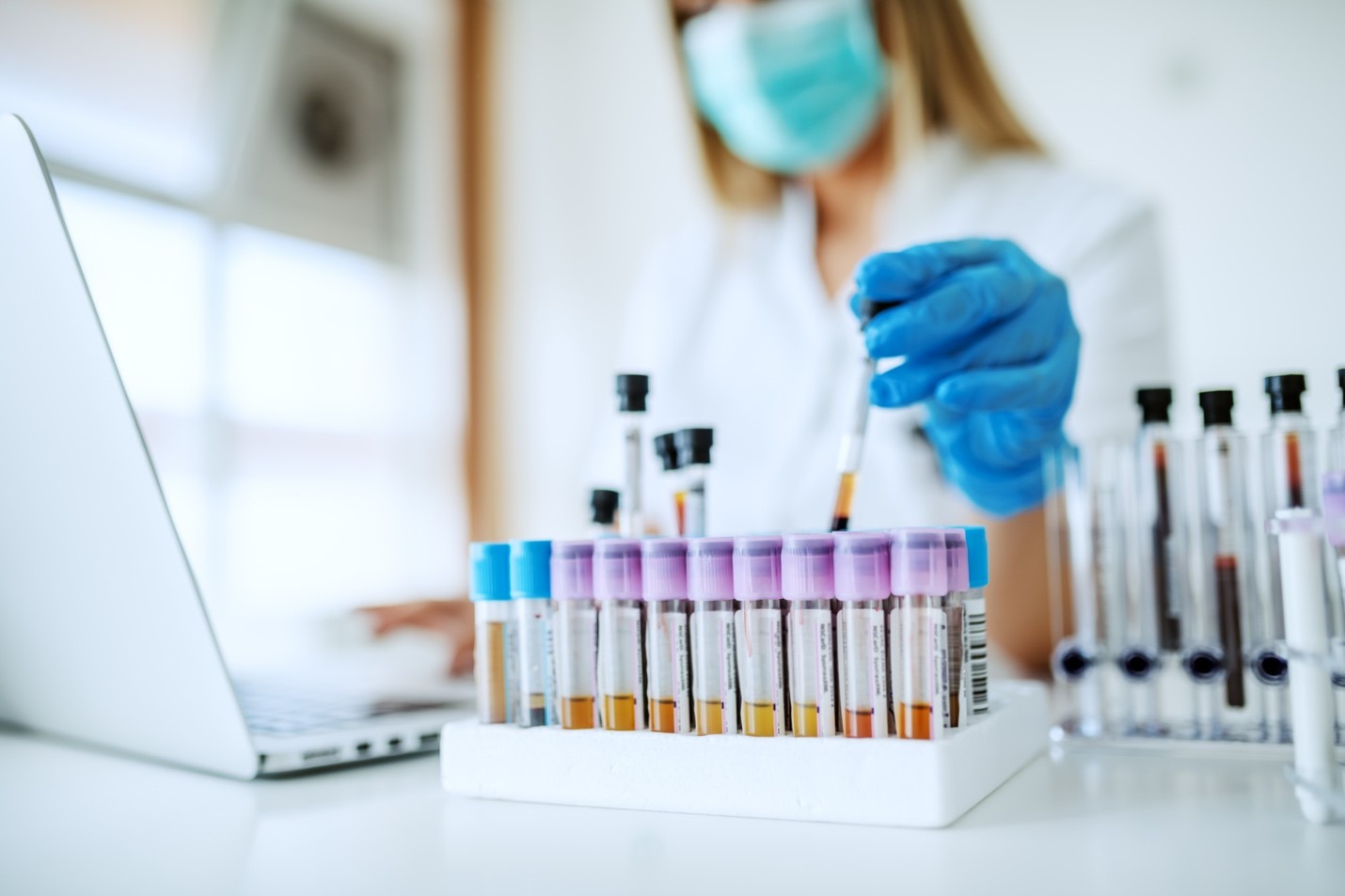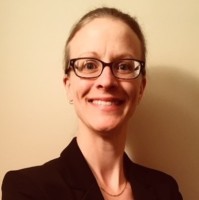
New York Blood Center Enterprises (NYBCe) is typically known for its high-quality blood products and laboratory services, but those aren’t the organization’s only priority.
Consisting of nine divisions including several blood centers, a research institute, and a biotechnology sector, NYBCe seeks to train and educate the next generation of blood banking and transfusion medicine leaders through a variety of educational opportunities. They offer lectures, webinars, fellowship programs, and more — each giving customers and colleagues the tools they need to excel in their field.
Curious about these resources and what you can gain from them? Representatives recently spoke with the Enterprise’s Manager of Education and Training for the Immunohematology Reference and Genomics Laboratories, Lynsi Rahorst, MHPE, MT(ASCP) SBBCM, about this key facet of the nonprofit’s mission.
Q: To start, can you describe your current role with New York Blood Center Enterprises? How long have you been with the organization?

Lynsi: My current title is the Manager of Education and Training for the Immunohematology Reference Laboratory (IRL) and the Genomics Laboratory.
I see my job as divided into two sections. One is to provide training to the IRL and Genomics labs across New York Blood Center Enterprises. The other is to provide external education to our customers and the blood banking and transfusion medicine community at large.
I joined NYBCe about 10 years ago as an Immunohematology Reference Laboratory Technologist at the Community Blood Center (CBC) in Kansas City, Missouri. Then, I was Education Coordinator at CBC for a few years before starting my current position, which has more of an Enterprise focus.
Q: Is education part of your background? If not, why were you drawn to NYBCe’s professional education?
Lynsi: I’ve always liked to teach. Whatever form it took — being a tutor in college, for example — I just always knew that I enjoyed instructing others.
When I was a technologist in the IRL at CBC, I completed a Master’s in Health Professions Education. This opened up more instructional opportunities for me.
Then, I became the Education Coordinator at CBC, where we worked really hard to improve the educational opportunities that we offered customers. We created excellent educational programs for students at local Medical Laboratory Science (MLS) programs, residents, blood bank technologists, and more.
Now in my current role, it’s my goal to expand on our work at the Community Blood Center and share it across all NYBCe sites.
Q: What kinds of professional education opportunities does NYBCe offer throughout the year?
Lynsi: Right now, the main initiatives we’re pushing are the Essentials of Transfusion Medicine Webinar Series (ETMWS) and our new NYBCe Education Resources web page.
The Essentials of Transfusion Medicine Webinar Series is a weekly webinar series held on Wednesday afternoons from 3:00-4:30pm EST or 2:00-3:30pm CST. It started on January 13, 2021, and will go all the way until June 16. It covers a broad range of blood banking and transfusion medicine topics.
The Education Resources page, on the other hand, is a hub for all of our educational programs going forward. Currently, you can access recordings of the ETMWS on demand there. You can also access recordings of other P.A.C.E.-accredited webinars that have been hosted across the Enterprise.
There are also some e-learning courses, which are more interactive than the webinars, and they also award P.A.C.E. credits. The page contains special presentations and lectures by NYBCe subject matter experts, videos of immunohematology methods, specialized blood bank resources, and online modules for MLS students and residents.
The NYBCe Education Resources web page is going to keep growing as time goes on. So, I encourage people to regularly check for updates.
Q: What do participants gain from NYBCe’s professional education opportunities?
Lynsi: Our resources give NYBCe customers and the blood banking and transfusion medicine communities a chance to learn from some of the best and brightest experts in the field.
Participants in our educational opportunities can also earn P.A.C.E. credits, which are needed for laboratory professionals to renew their certifications.
The other thing that people gain is easy access to all of this content. If you work the night shift, for example, you know it can be hard to take advantage of certain educational opportunities. The on-demand nature of our resources makes them easy to access whenever it’s most convenient for you.
Q: Are there any benefits to these programs beyond providing valuable instruction and on-demand industry knowledge?
Lynsi: Providing educational content also benefits our staff — both new and current. It’s a professional development tool that helps our technologists get comfortable making presentations and sharing their expertise with others. It can also be a recruitment tool because it showcases NYBCe’s expertise in the field.
I really do believe that our customers and the blood banking and transfusion medicine communities at large are hungry for educational content. Our first webinar series has proven that.
Q: Speaking of, tell us more about the Essentials of Transfusion Medicine Webinar Series. How has the transition from in-person to virtual gone? What has been the response to the webinar so far?
Lynsi: There are always organizational challenges to putting anything this big together. It spans five months, so that’s a lot of instruction!
This is the first year the course has been virtual, so we’re learning as we go and taking all feedback into close consideration so we can make improvements every week. It’s also helpful insight for future projects.
The response we’ve gotten so far, though, has been overwhelmingly positive. For our very first webinar back in January, we had purchased a subscription to a webinar platform that could host 150 participants. In the first week, we realized 210 people had registered and needed to upgrade! It was a good problem to have.
At first, I thought the free P.A.C.E. credits were luring participants. But now, more than ten weeks in, I’ve discovered we have a really faithful group of attendees who come every week. And to be honest, we’re offering way more P.A.C.E. credits than any one individual needs in the three-year re-certification period. So, I think people are staying around because they find value in the content.
The other thing is, with the course being virtual, even more people can join. Think about it: suddenly, this course from New York Blood Center Enterprises is easily accessible to anyone, even those outside of New York. We have been able to reach a much broader section of our blood center customers.
Q: Do you foresee this course staying virtual or will it be in person again?
Lynsi: That’s a good question. One of my plans going forward is to listen to feedback from our customers and attendees.
Yes, the webinar platform is convenient, but there are some people who prefer to listen to a lecture in person. It’s a networking opportunity. So, future decisions will depend on that feedback. It could be a hybrid model. It’s all left to be determined, though.
Q: What is your vision or how do you see NYBCe’s educational programs evolving over the next few years?
Lynsi: It really depends on the needs of the community. But my hope is that we expand and continue to offer convenient educational opportunities to blood bankers. Regardless, we strive to make sure it’s all high quality.
Through these educational offerings and free resources, NYBCe demonstrates its commitment to not only supporting hospitals and patients with blood donations and blood products, but also training and educating future leaders in blood-related fields. As research continues to grow, change, and develop, NYBCe hopes to remain at the forefront.
Visit NYBCe’s Education Resources to stay up to date with the Enterprise’s professional education opportunities. You can also learn more about the Essentials of Transfusion Medicine Webinar Series.
If you’d like to help NYBCe continue to offer convenient, high-quality educational content and support their mission to train the next generation of blood banking and transfusion medicine leaders, please consider making a financial contribution online today.